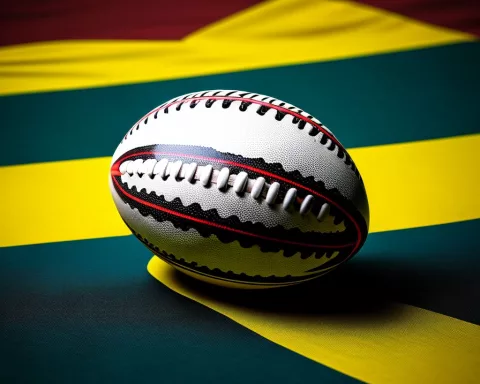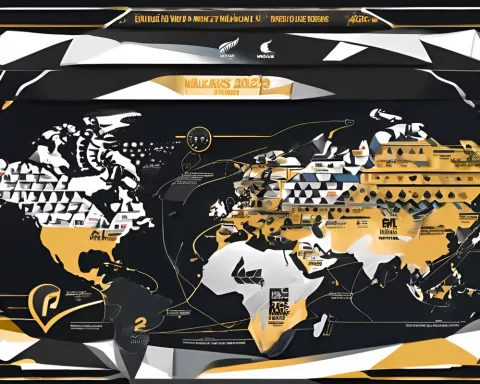Ireland’s Rugby World Cup journey ended in disappointment as they failed to progress past the quarterfinals. Many have questioned if their players were pushed too hard, with the head coach choosing to field their strongest team consistently. This resulted in high playtime for key players and may have led to fatigue, highlighting the importance of strategic squad rotation and managing player workload. The contrasting strategies of South Africa and New Zealand, which prioritized squad rotation, showcase the potential pitfalls of overexertion.
Did Ireland push their players too hard in the Rugby World Cup?
Ireland’s head coach chose to consistently field their strongest team, resulting in an average playtime of 250 minutes across four pool games. Key players played every minute of their pool matches before taking on a full 80 against the All Blacks, in contrast to New Zealand and South Africa’s squad rotation strategy. This approach may have led to Ireland’s fatigue and subsequent downfall, highlighting the significance of strategic squad rotation and managing player fatigue.
Ireland’s participation in the Rugby World Cup was anticipated to be highly successful. With the world’s number-one ranking and an impressive 17-match winning streak under their belt, they seemed poised to achieve their first-ever quarterfinal win and potentially much more. However, the reality turned out to be quite different, as the Irish team now finds itself heading home while New Zealand and South Africa move on to the semifinals. This unexpected turn of events begs the question: did Ireland push their players too hard?
Squad Rotation and its Importance
In Rugby World Cups, coaches usually adopt squad rotation, deploying their secondary players against weaker teams. However, Ireland’s head coach, Andy Farrell, chose a different path by consistently fielding their strongest team not only for tough matches against the likes of South Africa and Scotland but also against lower-ranked teams such as Romania and Tonga. This decision had consequences, as the Irish starting lineup averaged 250 minutes of playtime across four pool games.
It is notable that key players, including Bundee Aki and Hugo Keenan, played every minute of their pool matches before taking on a full 80 against three-time world champions, the All Blacks. This workload stands in stark contrast to that of New Zealand and South Africa, which averaged 167 and 164 minutes, respectively. Damian Willemse, who accumulated the most minutes for South Africa, clocked 216 minutes across pool matches—a significantly lower figure than the Irish players.
Differing Strategies and Their Consequences
Rassie Erasmus, the Director of Rugby, hinted at this discrepancy and its possible repercussions, asserting, “Some teams went and just picked their best team every single game. I think that’s a bit tough to do that.” This remark underscores the contrasting strategies of South Africa and New Zealand, which prioritized squad rotation during the group stages, unlike Ireland’s approach.
The repercussions of Ireland’s strategy became evident during their match against New Zealand. The typically spirited and strong Irish team appeared noticeably exhausted. Despite a 37-phase attempt, their efforts were ultimately thwarted by a Sam Whitelock steal. As a result, this heavily favored Irish team now faces an early exit from the tournament.
Learning from Ireland’s Experience
The divergent outcomes of Ireland, New Zealand, and South Africa in the Rugby World Cup showcase the significance of strategic squad rotation and the potential pitfalls of overworking key players. While it is impossible to identify a single factor behind the Irish team’s premature departure, it is evident that their unwavering reliance on their strongest team members may have led to their fatigue and subsequent downfall.
As Ireland’s Rugby World Cup journey reaches an early conclusion, this experience serves as a valuable lesson for future tournaments. Striking a balance between the optimal use of key players and offering opportunities for secondary team members to gain experience and contribute is essential for managing fatigue and improving performance. In the end, strategic squad rotation could be the secret to success in high-stakes competitions like the Rugby World Cup.
What is squad rotation in rugby?
Squad rotation is a strategy used by rugby coaches to manage player workload by deploying secondary players against weaker teams, while holding back key players for tougher matches.
Why did Ireland’s Rugby World Cup journey end in disappointment?
Ireland’s Rugby World Cup journey ended in disappointment because they failed to progress past the quarterfinals, despite having the world’s number-one ranking and 17-match winning streak prior to the tournament.
Did Ireland consistently field their strongest team in the Rugby World Cup?
Yes, Ireland’s head coach consistently fielded their strongest team in the Rugby World Cup, even against lower-ranked teams such as Romania and Tonga.
What was the average playtime for Irish players in the Rugby World Cup?
The Irish starting lineup averaged 250 minutes of playtime across four pool games, with key players playing every minute of their pool matches before taking on a full 80 against the All Blacks.
How does Ireland’s strategy compare to New Zealand and South Africa’s strategy in the Rugby World Cup?
Ireland’s strategy of consistently fielding their strongest team contrasts with the squad rotation strategy employed by New Zealand and South Africa during the group stages.
What are the potential pitfalls of overexertion in rugby?
Overexertion can lead to player fatigue, which can result in decreased performance and potentially even injury.
What can be learned from Ireland’s experience in the Rugby World Cup?
Ireland’s experience in the Rugby World Cup highlights the importance of strategic squad rotation and managing player workload to prevent fatigue and improve performance.
Could strategic squad rotation be the secret to success in high-stakes rugby competitions like the Rugby World Cup?
Yes, striking a balance between the optimal use of key players and offering opportunities for secondary team members to gain experience and contribute could be the secret to success in high-stakes rugby competitions like the Rugby World Cup.












